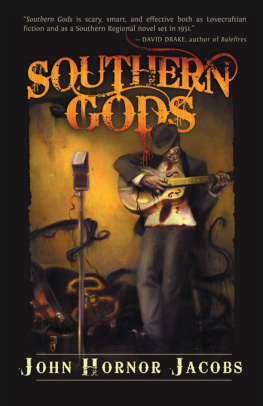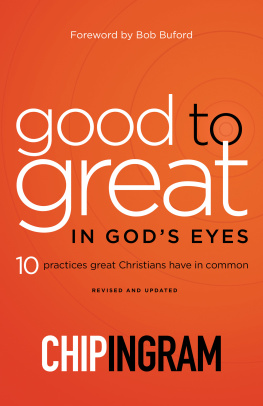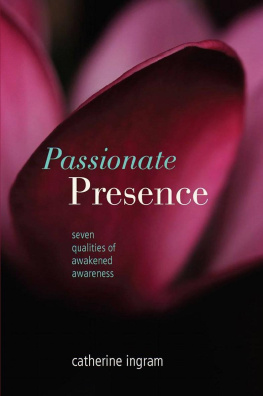SOUTHERN
GODS
JOHN HORNOR JACOBS
Night Shade Books
San Francisco
Southern Gods 2011 by John Hornor Jacobs
This edition of Southern Gods
2011 by Night Shade Books
Cover art by Rodrigo Luff
Cover design by Claudia Noble
Interior layout and design by Amy Popovich
Edited by Ross E. Lockhart
All rights reserved
First Edition
Printed in Canada
ISBN: 978-1-59780-285-7
eISBN: 978-1-59780-353-3
Night Shade Books
Please visit us on the web at
http://www.nightshadebooks.com
For my father who told me the stories of Achilles and Odysseus
On the drive to Michigan, after midnight,
Sometime in 1979.
And for my mother, who let him.
As flies to wanton boys are we to th gods,
They kill us for their sport.
William Shakespeare,
King Lear Act 4, scene 1, 3237
Prologue
1878, Rheinhart Plantation
T he black thing walked from the forest and took the shape of a man. Wilhelm watched it through the window, from his sickbed.
At first the creature shuffled, a thing of gristle, all angular joints and thick sinew. It moved erratically, in a herky-jerky fashion that reminded the boy of a circus performance; each limbs movement was prolonged, drawn out, as if for dramatic effect. The legs lifted, paused, wavered, and then placed themselves, each one moving independently of the others. It was hard to tell if its appendages ended in hands, or hooves, or claws. Even in the slanting afternoon light, its features were indistinct, blurry. The creature moved into the stubble of the empty field and stopped.
The boy thought it might be wildschweinone of the vicious boars that foraged the dark wood and edges of fieldsuntil the thing shifted. Its skin became mottled, rippled, and then faded back to black.
It rose. The black creature looked as though its spine had cracked and reorganized itself, and a man stood where the creature had. But it was still black. Still inhuman. And faceless.
It turned and looked at the boy.
How he knew it perceived him, the boy couldnt say. The entitys head remained featureless, like an ebony mannequins. Wilhelms breath caught in his chest and he could feel the impeding frenzy of coughs building. With it would come the blood, at first just flecking his lips, then a fine spray that would speckle his handkerchief, drip on his dressing gown, soil his linens.
Der Erlknig, he thought, remembering.
He had started coughing in the winter and never stopped. To ease the tightness in his chest, the Rheinhart servants began placing boiling pots of water in his room at night. The steam would fog the windows and in the morning, the boy would be able to hear the farm come to life around him: the clucking of the chickens, the braying of mules being harnessed, the screeches of peafowl, the clatter of pans and cutlery in the kitchen. But he would not be able to see it.
By spring, his mother moved him out of the room he shared with his brother and into the small bedroom at the back of the plantation house, near the sleeping porch. Hed cried and thrashed and tried to talk her out of it, but she stood pale-faced at the door, tears streaming down her cheeks, and shook her head. Wilhelm fought as the servants entered the room and began bundling his clothes; he swung his fists wildly, but hed already lost enough strength to be easily winded. He hit one serving mans back with his small, hard fists, but the man ignored him except to pull his shirt over his mouth and nose. His younger brother, Karl, watched from behind their mothers skirts as the burly servant grasped Wilhelms arms, turned his face away, and drew the crying boy out of the room, down the hall and stairway, and firmly placed the boy in a vacant servants quarters, behind the kitchen. He cried then, and hated.
At night, he dreamt of killing his brother, and his mother, for banishing him. For abandoning him.
He grew weak and pale.
One morning his father had come to his new room, bundled Wilhelm in a blanket, and carried him through the house with a blank expression. The boy watched, partly bemused, as he passed through the house in his fathers arms, staring up at the vaulted ceilings and crystal chandeliers as they passed overhead in a strange procession. His father placed him in a harnessed carriage and drove east at a furious pace until they came to a wide, massive river.
They boarded a ferry, their horse nickering, the carriage swaying on its wheels. After an hour of stevedores straining against the Mississippis current, they gained the eastern shore. That evening they pulled into the courtyard of a beautiful building, a place strewn with light and laughter and fine gentlemen and ladies walking on the grass, the smoke from cigars wafting on the evening air like a warm memory. The sign read Gayoso House, although the building, to the boys eyes, seemed palatial.
Where are we? he had asked.
Memphis.
But why?
Why? You mean why are we here?
He nodded. His father jumped down from the carriage and handed the reins to a stable attendant. When his father lifted him, again, the gentlemen and ladies turned to look. Wilhelm felt his cheeks grow red. He coughed into the blanket as quietly as possible.
Here, said his father, handing him a handkerchief. Cough into this. Its very important.
Why are we here?
Youre sick.
Im feeling better. Ive stopped coughing. See?
Yes. His father carried him across the lawn and into the hotel. He set Wilhelm down in an ornate chair in the lobby as he paid for a room. Then he lifted him again. The boy was growing accustomed to staring at ceilings.
That night, silent men came into his darkened bedroom and touched him with cold hands. With soft, papery voices, they asked him to cough and listened to his chest. They frowned and regarded him solemnly, eyes devoid of hope.
Consumption, they called it, as they spoke with his father in hushed voices. His fathers face grew somber and even paler than before, and he glanced at Wilhelm and smiled at him, weakly.
Wilhelms breath came in short gasps, and his eyelids felt leaded and heavy. He closed his eyes.
When he awoke, it was still night and his father sat beside him, reading by lantern light.
What are you reading?
A story.
The boy fought the cough building in his chest. He didnt want his father to pity him.
Will you read to me?
Its in German.
Memaw taught me some. I know a few words.
Ill translate. Hows that?
Wilhelm nodded and nestled further down into the bed.
This is Der Erlknig, a poem by a man named Gethe, written a long time ago. Its a story about a father and his son, traveling home on horseback through a dark forest. The boy is sick, and the father is frantic to get him home. As they ride, the boy becomes delirious and sees a frightening man in the woods.
His father began to read, haltingly at first. Sometimes hed sound out the German and then translate.
My son, oh why do you look so afraid?
See Father, dont you see the Elf king is there?
The Elf king, Elf king with crown and cloak?
My son, its a wisp of mist.
He paused. How much of this do you understand, Wil? he asked.
I dont know. Enough. Its scary.
His father smiled. Very scary to me. And very sad. Im sorry I never taught you how to speak or read German. He rubbed his eyes. I should stop. The ending might be too frightening for you right now.
No, it isnt. I just dont understand everything.
Lets see if I can explain it. His father shifted in his chair. The man cant see the elf king, only trees. The Erlknig promises things to the dying boy, the love of his daughter, if only the boy will come with him. In the end, the boy dies. The poem doesnt make it clear whether the boy is hallucinating the Erlknig or if hes really there, stealing away the childs life. He bowed his head for a moment, then pulled a pipe from his vest, packed it with tobacco, and lit it from a match. I dont know why Im reading this to you at all. Maybe it was on my mind.
Next page











